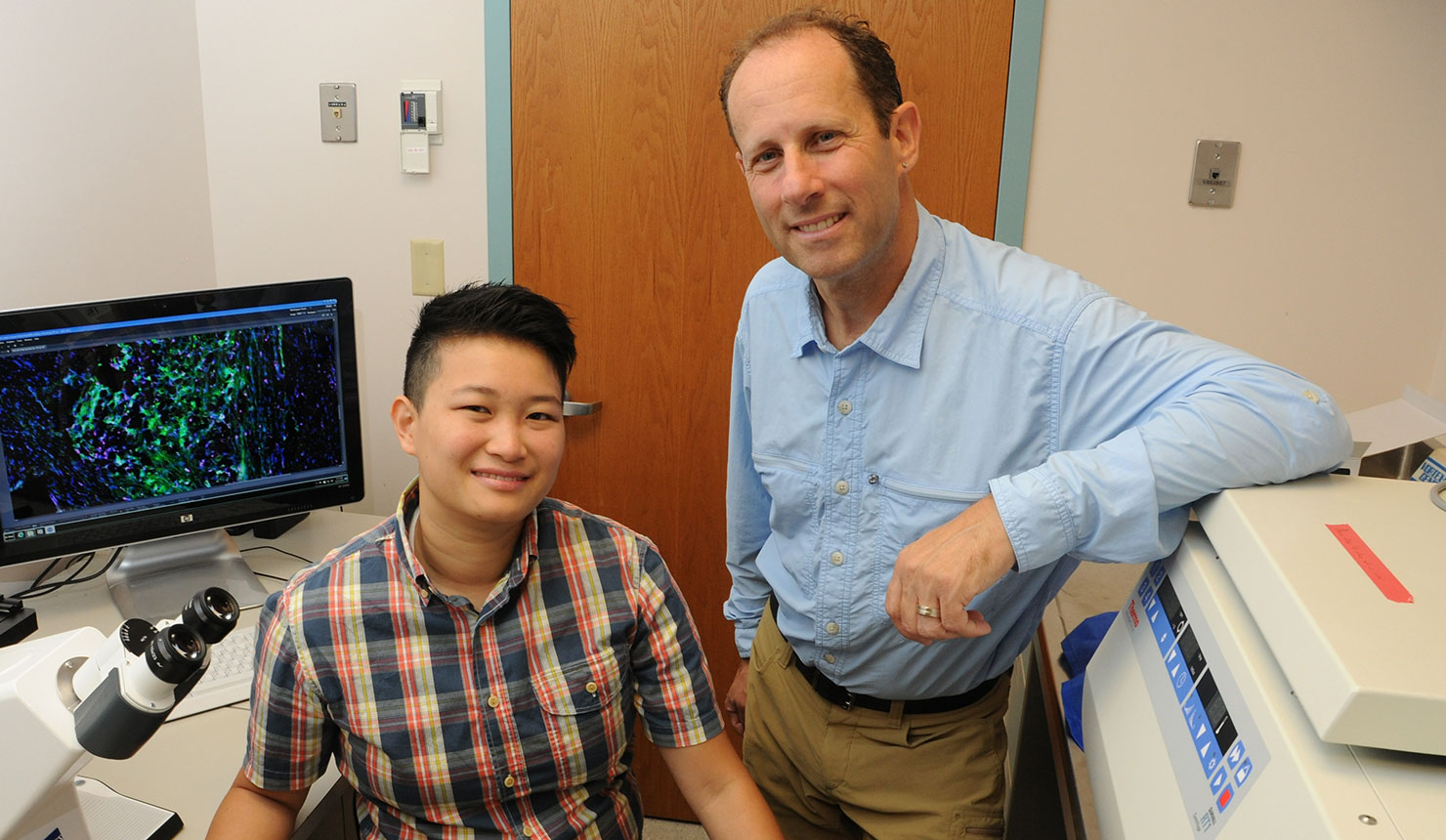
In the world of viruses, where longevity and persistence mark success, the herpes simplex virus (HSV-1), a common infection of the nervous system, clearly makes the grade. “It’s a virus that’s been around for millennia—even Hippocrates described its lesions,” says David Leib, PhD, a professor of microbiology and immunology at Dartmouth’s Geisel School of Medicine.
While modern medicine has produced a number of excellent anti-viral drugs to treat herpes simplex virus, none have been able to eliminate its latency. “Consequently, there is this constant reservoir of virus in the community, just waiting to reactivate and spread to new, susceptible individuals,” he says.
Most at risk are newborn infants, who are highly susceptible to infection due to their immature immune systems and can contract the virus from their infected mothers as they pass through the birth canal.
“While HSV-1 is predominantly associated with cold sores and genital infections, it can also enter the brain and cause encephalitis,” explains Leib. “In newborns this can be severe, causing brain damage or death—recent epidemiological studies are starting to recognize the significant global burden of such neonatal HSV infections.”
However, findings from a study published this week in the journal mBio®, headed by Leib and his research team at Geisel, are shedding new light on the important role that maternal antibodies can play in protecting neonatal nervous systems against infections.
In a series of laboratory experiments utilizing mouse tissue, as well as human tissue, the investigators found that antibodies produced by adult women or female mice were able to migrate easily to the nervous systems of their unborn babies. They were then able to show that these maternal antibodies fully protected newborn mice from acquiring HSV-1.

“What this tells us is that women who get pregnant who have a pre-existing herpes infection have a mature immune response to that virus and will pass those antibodies to their baby,” Leib says. “If that baby should be infected during delivery, it will be protected because the mother’s antibodies get into its nervous system before birth. But, if women acquire the virus during pregnancy, the risk of severe outcomes for the newborn can be significant, as high as 50 percent.”
“Maternal antibodies providing protection to infants’ nervous systems hasn’t been noted before, and is very important for pathogens that infect newborns because there is often some kind of neurologic consequence that may impact their entire lives,” says Yike Jiang, an MD-PhD student at Geisel who served as lead author on the study. Other collaborators included Andrew Pachner, MD, and Francesca Gilli, PhD, from neurology and Lananh Nguyen, MD, MS, from pathology.
Remarkably, it was “total serendipity” that led to the study’s initial observation, made by Jiang. “It was something that she discovered because a series of control experiments she was doing, looking for something else—a certain type of cell in the nervous system—kept coming up positive,” says Leib, who’s laboratory focuses primarily on examining viral pathogenesis at the molecular level.
“I think it was Yike’s unique perspective, drawn from her dual training as a clinician-scientist and from the fact that she’s just a terrific student, that really drove this project,” he says. “She recognized the significance of the data she was getting before anyone else. It then became sort of a hot topic once we knew what we were on to.”
Next, Leib and his colleagues plan to test the efficacy of existing HSV-1 vaccines in their mouse neonatal model. These vaccines have been developed to stop adult-to-adult or “horizontal” transmission of the virus, and none have succeeded in clinical trials.
“What we’re proposing is the idea that they should be reinvestigated to look at so-called ‘vertical’ protection—that is, protection that’s passed from the mother to the fetus or newborn,” he says. “Maternal immunization, either through administering a vaccine or introducing antibodies, may also be an effective strategy to use against other pathogens that affect newborns, like the Zika virus.”
Leib credits the availability of the Munck-Pfefferkorn Education and Research Fund at Geisel for providing the essential support needed to complete the project. “Funding sources like the Munck-Pfefferkorn are incredibly valuable,” he says. “Without them, we wouldn’t be able to go off track a little bit and have the academic freedom to follow something that turns out to be very important.”